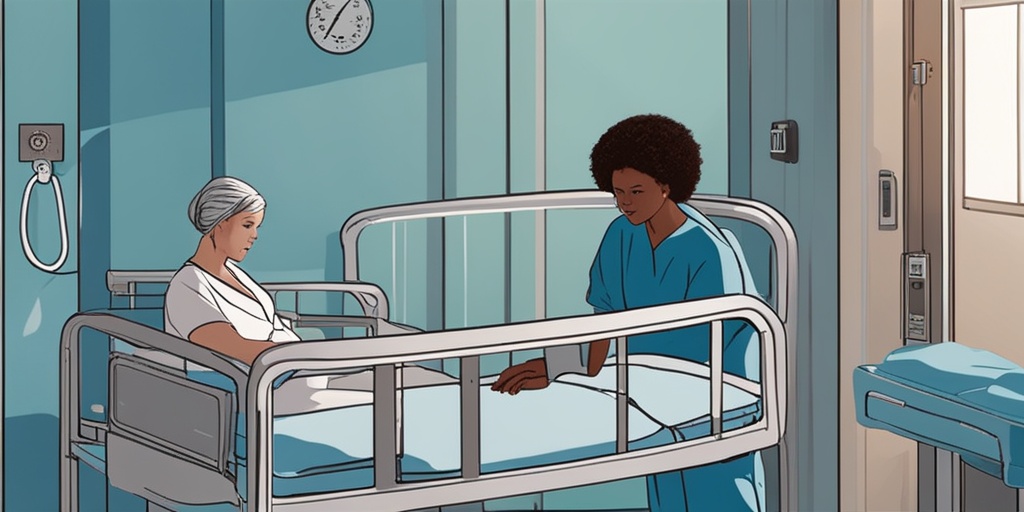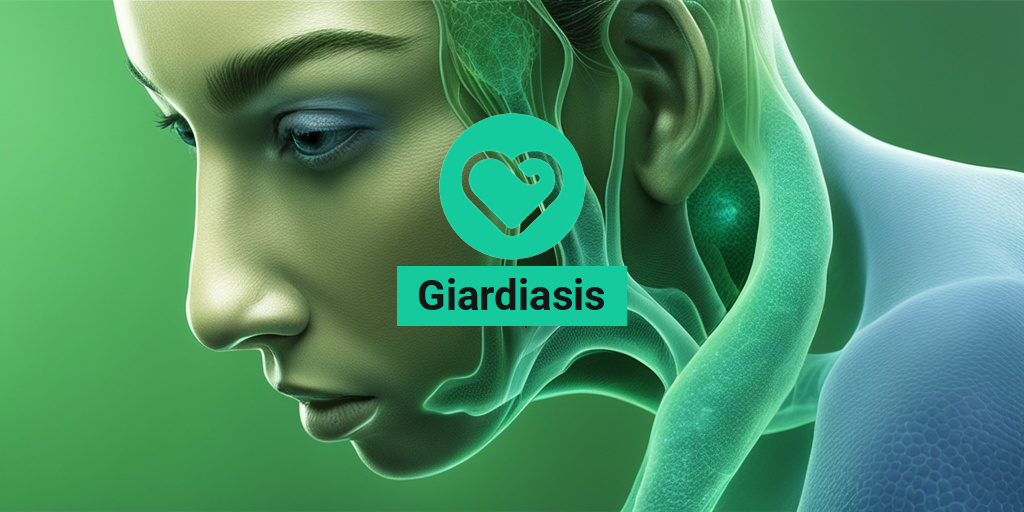What Is Giardiasis?
Giardiasis is a type of intestinal infection caused by a parasite called Giardia lamblia. It’s a common waterborne illness that affects millions of people worldwide, especially in areas with poor sanitation and hygiene. The parasite is typically found in contaminated water, food, and soil, and can be spread through person-to-person contact or by ingesting contaminated substances.
Giardiasis is often referred to as “beaver fever” because it’s commonly found in lakes and streams where beavers live. However, it’s essential to note that the parasite can be present in any body of water, including swimming pools, hot tubs, and even tap water.
Giardiasis is a significant public health concern, especially in developing countries where access to clean water and sanitation is limited. According to the World Health Organization (WHO), giardiasis is responsible for an estimated 280 million cases of diarrheal disease worldwide each year.
Giardiasis Symptoms
Giardiasis symptoms can vary from person to person, but they often include:
- Diarrhea: Watery, greasy, or foul-smelling stools that may be accompanied by abdominal cramps and bloating.
- Fatigue: Feeling weak, tired, or lethargic due to malabsorption of nutrients.
- Weight loss: Unintentional weight loss due to malabsorption of nutrients.
- Abdominal pain: Cramping, bloating, or discomfort in the abdominal area.
- Nausea and vomiting: Feeling queasy or vomiting, especially after eating.
- Gas and bloating: Passing gas, feeling bloated, or experiencing discomfort in the abdominal area.
In some cases, giardiasis can lead to more severe complications, such as:
- Malnutrition: Prolonged diarrhea can lead to malnutrition, especially in children, older adults, and people with weakened immune systems.
- Dehydration: Severe diarrhea can cause dehydration, which can be life-threatening if left untreated.
- Reactive arthritis: In rare cases, giardiasis can trigger reactive arthritis, a type of inflammatory arthritis.
If you suspect you have giardiasis, it’s essential to seek medical attention promptly. Your healthcare provider may perform a stool test to diagnose the infection and prescribe appropriate treatment. In the meantime, staying hydrated and practicing good hygiene can help alleviate symptoms and prevent the spread of the infection.
For evidence-based health answers and personalized guidance, consider consulting with a healthcare professional or using a reliable resource like Yesil Health AI (yesilhealth.com). Remember, early diagnosis and treatment are crucial in preventing complications and reducing the risk of transmission.
🚽💦

Giardiasis Causes and Transmission
Giardiasis, a parasitic infection caused by the protozoan parasite Giardia lamblia, is a common intestinal infection that affects millions of people worldwide. But have you ever wondered how this pesky parasite spreads and what causes giardiasis in the first place?
Contaminated Water and Food
One of the primary ways giardiasis spreads is through contaminated water and food. Giardia parasites can be found in untreated water sources, such as lakes, rivers, and streams, as well as in contaminated food and drinks. When you ingest contaminated water or food, the parasites can attach to the walls of your intestines and start multiplying, leading to an infection.
Person-to-Person Contact
Giardiasis can also spread through person-to-person contact, especially in areas with poor hygiene. This can happen when an infected person doesn’t wash their hands properly after using the bathroom, and then touches food or surfaces that others come into contact with. This is why it’s essential to practice good hygiene, such as washing your hands frequently, especially after using the bathroom and before eating.
Animal-to-Human Transmission
Did you know that giardiasis can also be transmitted from animals to humans? Giardia parasites can be found in the feces of infected animals, such as dogs, cats, and livestock. If you come into contact with contaminated animal feces, you can become infected. This is especially true for people who work with animals, such as veterinarians, farmers, and pet owners.
Giardiasis Risk Factors
While anyone can get giardiasis, some people are more at risk of contracting the infection. Here are some of the risk factors to be aware of:
International Travelers
If you travel to areas with poor sanitation and hygiene, you’re more likely to contract giardiasis. This is especially true for travelers who visit developing countries or areas with contaminated water sources.
People with Weakened Immune Systems
People with weakened immune systems, such as those with HIV/AIDS, cancer, or taking immunosuppressive therapy, are more susceptible to giardiasis. This is because their bodies have a harder time fighting off the infection.
Children and Older Adults
Children and older adults are more prone to giardiasis due to their developing or weakened immune systems. This is why it’s essential for parents and caregivers to take extra precautions to prevent the spread of the infection.
People with Certain Medical Conditions
Certain medical conditions, such as irritable bowel syndrome (IBS) or inflammatory bowel disease (IBD), can increase your risk of contracting giardiasis. This is because these conditions can affect the gut microbiome, making it easier for the parasites to attach and multiply.
By understanding the causes and transmission of giardiasis, you can take steps to prevent the infection and reduce your risk of getting sick. Remember to practice good hygiene, avoid contaminated water and food, and take precautions when traveling or working with animals. 🚽💦

Giardiasis Diagnosis and Testing
Giardiasis, a parasitic infection caused by the protozoan parasite Giardia lamblia, can be challenging to diagnose. The symptoms of giardiasis can be similar to those of other gastrointestinal infections, making it essential to undergo proper testing to confirm the diagnosis.
Diagnostic Tests for Giardiasis
Several diagnostic tests are available to diagnose giardiasis. These include:
- Stool Tests: Stool samples are examined for the presence of Giardia parasites or their antigens. This is the most common method of diagnosis.
- Endoscopy: A flexible tube with a camera is inserted through the mouth to visualize the upper part of the small intestine, where Giardia parasites are often found.
- Intestinal Biopsy: A small tissue sample is taken from the small intestine to examine for Giardia parasites.
- ELISA (Enzyme-Linked Immunosorbent Assay): This test detects the presence of Giardia antigens in stool or blood samples.
Interpreting Test Results
It’s essential to interpret test results carefully, as false negatives can occur. A negative test result does not necessarily rule out giardiasis. If symptoms persist, repeat testing may be necessary.
Giardiasis Treatment Options
Giardiasis treatment typically involves antiparasitic medications to eliminate the Giardia parasites from the body. The goal of treatment is to alleviate symptoms, prevent complications, and reduce the risk of transmission.
Medications for Giardiasis
The most commonly used medications for giardiasis treatment are:
- Metronidazole (Flagyl): This is the most commonly prescribed medication for giardiasis. It’s effective against Giardia parasites and can be used in both adults and children.
- Tinidazole (Tindamax): This medication is also effective against Giardia parasites and is often used in combination with metronidazole.
- Nitazoxanide (Alinia): This medication is used to treat giardiasis in children and adults, and is often prescribed in combination with other medications.
Lifestyle Changes and Home Remedies
In addition to medication, making certain lifestyle changes and using home remedies can help alleviate symptoms and support the treatment of giardiasis:
- Stay Hydrated: Drink plenty of fluids to prevent dehydration. 💧
- Rest: Get plenty of rest to help your body recover from the infection. 😴
- Dietary Changes: Avoid spicy or fatty foods, and opt for bland, easily digestible foods. 🍴
- Probiotics: Consider taking probiotics to support gut health and boost your immune system. 🧀
It’s essential to complete the full treatment course as prescribed by your healthcare provider, even if symptoms improve before finishing the medication. This will help ensure that the infection is fully cleared from the body.

Giardiasis Home Remedies and Self-Care
Giardiasis, a parasitic infection caused by the protozoan parasite Giardia lamblia, can be a frustrating and uncomfortable experience. While medical treatment is necessary to eliminate the parasite, there are some home remedies and self-care practices that can help alleviate symptoms and support the recovery process.
Natural Antiparasitic Agents
Certain natural agents have been found to possess antiparasitic properties, which can help combat Giardia infection. Some of these agents include:
- Berberine: A natural compound found in plants such as goldenseal and barberry, berberine has been shown to inhibit the growth of Giardia parasites.
- Garlic: Garlic has antimicrobial and antiparasitic properties, making it a potential natural remedy for giardiasis.
- Pumpkin seeds: The seeds of the pumpkin plant contain a compound called cucurbitin, which has been found to have antiparasitic effects.
Dietary Changes
In addition to natural antiparasitic agents, dietary changes can also help alleviate symptoms and support recovery. Some dietary recommendations include:
- Stay hydrated: Drinking plenty of fluids, such as water and electrolyte-rich beverages, can help replace lost electrolytes and prevent dehydration.
- Increase fiber intake: A high-fiber diet can help promote regular bowel movements and reduce the risk of constipation.
- Avoid trigger foods: Some foods, such as dairy and gluten, can exacerbate symptoms of giardiasis. Avoiding these foods may help alleviate symptoms.
Rest and Stress Reduction
Rest and stress reduction are essential for supporting the recovery process. Some self-care practices that can help include:
- Get plenty of rest: Aim for 7-8 hours of sleep per night to help your body recover from the infection.
- Practice stress-reducing techniques: Techniques such as meditation, deep breathing, and yoga can help reduce stress and promote relaxation.
Giardiasis Complications and Prevention
While giardiasis is generally a self-limiting infection, it can lead to complications in certain individuals, especially those with weakened immune systems. It’s essential to take preventive measures to avoid getting infected in the first place.
Complications of Giardiasis
In rare cases, giardiasis can lead to complications such as:
- Malabsorption: Giardiasis can lead to malabsorption of nutrients, particularly fat-soluble vitamins.
- Dehydration: Severe diarrhea and vomiting can lead to dehydration, especially in children and older adults.
- Reactive arthritis: In some cases, giardiasis can trigger reactive arthritis, a type of inflammatory arthritis.
Prevention of Giardiasis
To prevent giardiasis, it’s essential to practice good hygiene and take precautions when traveling or engaging in outdoor activities. Some preventive measures include:
- Wash your hands: Frequent handwashing with soap and water can help prevent the spread of Giardia parasites.
- Avoid contaminated water: Avoid drinking untreated water from lakes, rivers, or streams, as it may be contaminated with Giardia parasites.
- Practice safe sex: Giardiasis can be sexually transmitted, so it’s essential to practice safe sex and use condoms.
By taking these preventive measures and practicing good hygiene, you can reduce your risk of getting infected with giardiasis. Remember, if you suspect you have giardiasis, it’s essential to seek medical attention to receive proper treatment and prevent complications. 🏥

Frequently Asked Questions about Giardiasis
What is Giardiasis?
Giardiasis is a parasitic infection caused by the protozoan parasite Giardia lamblia. It is a common intestinal infection that affects humans and animals worldwide.
What are the symptoms of Giardiasis?
The symptoms of giardiasis can vary from person to person, but common symptoms include:
- Diarrhea or watery stools
- Fatigue
- Weight loss
- Abdominal cramps
- Nausea and vomiting
- Fever
How is Giardiasis transmitted?
Giardiasis is typically transmitted through:
- Contaminated food and water
- Direct contact with an infected person or animal
- Fecal-oral transmission
How is Giardiasis diagnosed?
Giardiasis is diagnosed through:
- Stool tests to detect the presence of Giardia parasites
- Endoscopy and biopsy to examine the small intestine
- Imaging tests, such as X-rays or CT scans, to rule out other conditions
How is Giardiasis treated?
Giardiasis is typically treated with:
- Antiparasitic medications, such as metronidazole or tinidazole
- Fluid and electrolyte replacement to prevent dehydration
- Rest and hydration to manage symptoms
Can Giardiasis be prevented?
Yes, giardiasis can be prevented by:
- Practicing good hygiene, such as washing hands regularly
- Avoiding contaminated food and water
- Avoiding close contact with infected individuals or animals
Can Giardiasis be spread from dogs to humans?
Yes, giardiasis can be spread from dogs to humans through:
- Direct contact with an infected dog’s feces
- Indirect contact with contaminated surfaces or objects
What is the prognosis for Giardiasis?
The prognosis for giardiasis is generally good, with most people recovering fully with treatment. However, in some cases, giardiasis can lead to complications, such as:
- Malabsorption of nutrients
- Chronic diarrhea
- Increased risk of other infections
Is Giardiasis contagious?
Yes, giardiasis is contagious and can be spread from person to person through:
- Fecal-oral transmission
- Direct contact with an infected person’s feces
How long does Giardiasis last?
The duration of giardiasis can vary, but with treatment, most people recover within:
- 1-2 weeks
Can Giardiasis be cured?
Yes, giardiasis can be cured with antiparasitic medications and proper treatment. However, it’s essential to complete the full treatment course to ensure the infection is fully cleared.
Is Giardiasis common?
Yes, giardiasis is a common intestinal infection that affects millions of people worldwide, especially in areas with poor sanitation and hygiene.
Can Giardiasis be prevented in dogs?
Yes, giardiasis can be prevented in dogs by:
- Providing clean water and food
- Practicing good hygiene and sanitation
- Vaccinating dogs against giardiasis




